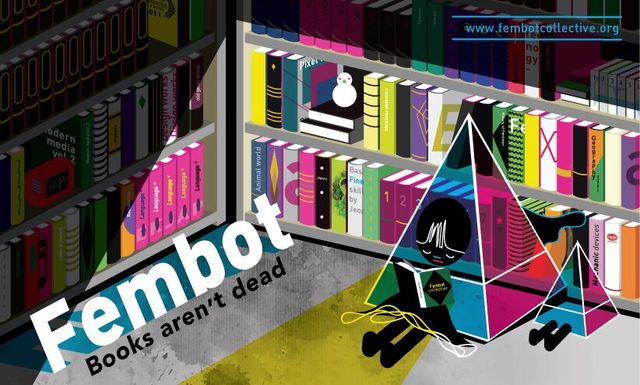Guidelines for contributions: We welcome contributions from individuals at all levels of their careers, including graduate students.
Interested contributors should fill out the submission form. The producers can provide suggestions of books or games to review or interested contributors can pitch a book of their choice.
Interviews should be between 30 and 60 minutes.
The goal of the interview is to provide listeners and readers with a sense of what the work is about, how it contributes to the field of feminist media studies, and what kinds of issues the author grappled with in the project. Interviewers are expected to have read the book carefully and should be prepared with a list of questions (these should be emailed to the interviewee ahead of time).
Recording: Please make sure that both you and the interviewee are in a quiet room. Here are some suggestions for recording your audio:
iPhone: http://itunes.apple.com/us/app/recorder/id284428991?mt=8
Google Hang-Outs on Air: http://googleblog.blogspot.com/2012/05/google-hangouts-on-air-broadcast-your.html
Skype (for Mac): http://www.youtube.com/watch?v=nqfog_Ve5Rc
Skype (PC): http://voipcallrecording.com/MP3SkypeRecorder
A Tascam or personal recording device
Podcasting equipment
Pieces should be in .mp3 or .wav format and emailed to Emily Edwards at eledwar@bgsu.edu and Robin Hershkowitz at robinh@bgsu.edu. If the file is too large to attach to an email, please upload to a storage space such as dropbox, google drive, onedrive, etc and email the link.
If you have any questions along the way, please do not hesitate to contact us!
Interview Guidelines
Interview Guidelines Interviews do not have to adhere to the traditional form of a written book review, rather an informative discussion between interview and author. Interviewers should read the text in its entirety before developing an outline of questions and themes to discuss with the author of the text.
It is helpful to begin with a brief summary of the book since many listeners may not have read it. The structure of the interview depends on the author, subject matter, and style of the interviewer. However, a sample structure can be as followed:
Introduction of author (position, past publications, previous work) Brief summary of book Major themes and interventions Example questions Why did you choose to analyze Twitter algorithms rather than Facebook algorithms to trace the #MeToo movement? How did you become interested in the topic of women’s representations in YouTube? In chapter three you focus on access to cell phones for migrants, why do you see this as an important feature of tracking integration? Methodology Example questions What was challenging about conducting ethnographies in rural villages? What advice would you give to other researchers who want to do text mining? Connections to the broader field and future research Example questions What sparked your interest in XYZ research topic? How do you see your work on sexting related to larger studies of youth internet culture? An outline should structure but not dictate the interview. A good interview is a dynamic conversation that follows a path that you discover during the interview, leading you to questions you did not write down. It also may depend on what the author would like to highlight. Additionally, you may want to ask questions about the production and development of the text, such as:
How did you come to decide to embark on this project?
What was the collaborative process like (if there are multiple authors)?
What resistance, if any, did you encounter in the development of this book?
What are areas you did not include but you encountered in your research?
Please keep in mind that 3-4 questions equal roughly 10-15 minutes, depending on the questions. Keep questions shorter rather than longer, and open-ended.


